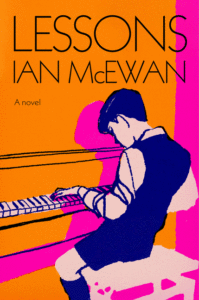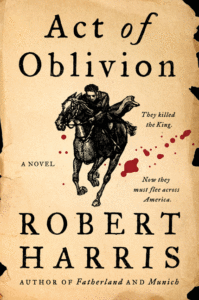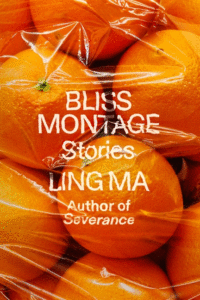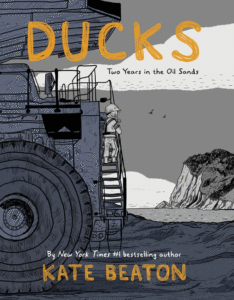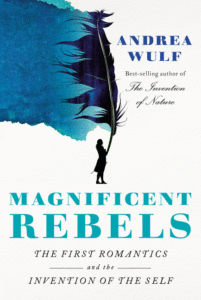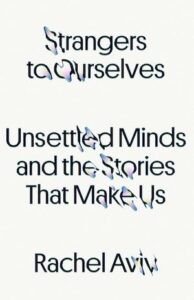
What Should You Read Next? Here Are the Best Reviewed Books of the Week
Featuring New Titles from Ian McEwan, Robert Harris, Kate Beaton, Ling Ma, and more

Ian McEwan’s Lessons, Robert Harris’ Acts of Oblivion, Kate Beaton’s Ducks, and Ling Ma’s Bliss Montage all feature among the Best Reviewed Books of the Week.
Brought to you by Book Marks, Lit Hub’s “Rotten Tomatoes for books.”
*
1. Lessons by Ian McEwan
(Knopf)
14 Rave • 4 Positive • 2 Mixed • 1 Pan
“The accretion of personal histories is skillful but not obviously interconnected, and you read in anticipation of the big magician’s reveal that will tie the disparate subjects in a neat bow … It turns out that the real revelation—and for me, the great appeal—of Lessons is that nothing like this ever comes about. Mr. McEwan has created a lost, likable protagonist whose ‘shapeless existence’ militates against the imposition of any grand order of meaning … Which is not to say that Lessons lacks drama, as Mr. McEwan builds toward reckonings between Roland and the two influential women in his life. Yet these scenes, while emotionally potent, are essentially inconclusive … This is quietly touching, as is Mr. McEwan’s decision to cede his habitual narrative control to more naturalistic forces. Lessons is more formless than previous books, and less obviously brilliant. It is also wiser and closer to the bone.”
–Sam Sacks (The Wall Street Journal)
2. Act of Oblivion by Robert Harris
(Harper)
12 Rave • 3 Positive
“Act of Oblivion could have been a dusty, distant, long-winded yarn. Instead, Harris delivers a gripping, well-paced tale rich in color, suspense and adventure … At various intervals, Harris flashes back to the English civil war and the last moments of a dethroned king. He serves up equally memorable depictions of plague, the Great Fire of London and a stormy voyage. But when he cuts back to the chase and charts the progress of three desperate men, he has his reader truly hooked.”
–Malcolm Forbes (The Star Tribune)
3. Bliss Montage by Ling Ma
(Farrar, Straus and Giroux)
7 Rave • 5 Positive • 1 Mixed
Read an interview with Ling Ma here
“The eight wily tales mark the return of an author whose inventive debut, Severance, urgently announced her as a writer worth watching … an assured follow-up, a striking collection that peddles in the uncanny and the surreal, but it often lacks Severance’s zest. Some stories are confident in their strangeness and ambiguity, a handful feel like promising sketches of sturdier narratives and the rest fall somewhere in between. The connections between them are loose, tethered by similar leads … Wry, peculiar stories like Los Angeles and Yeti Lovemakingconfirm that Ma’s imagination operates on the same chimerical frequency as those of Helen Oyeyemi, Samanta Schweblin, Meng Jin. Each of these stories leans un-self-consciously into the speculative, illuminating Ma’s phantasmagoric interests. They are funny, too … Despite their nagging loose ends, Ma’s stories stay with you — evidence of a gifted writer curious about the limits of theoretical possibility. They twist and turn in unpredictable ways and although the ride wasn’t always smooth, I never regretted getting on.”
–Lovia Gyarkye (The New York Times Book Review)
**
1. Ducks: Two Years in the Oil Sands by Kate Beaton
(Drawn & Quarterly)
9 Rave • 1 Positive
“An autobiographical and sociological masterpiece … There are a lot of extraordinary things about Ducks. Beaton manages to deftly juggle huge amounts of information … The book is about big, complicated issues….but Beaton touches on these myriad complex subjects gently … Beaton is smart and careful, with an unmatched skill at her craft … But the real reason Ducks is extraordinary is because Beaton herself is extraordinary. Few people in the same situation would have listened as closely, asked as many questions, and thought as deeply about what they had seen and heard as Kate did.”
–Eleanor Davis (The Comics Journal)
2. Magnificent Rebels: The First Romantics and the Invention of the Self by Andrea Wulf
(Knopf)
7 Rave • 1 Positive
Read an excerpt from Magnificent Rebels here
“… exhilarating … This is indeed an electrifying book, in its illuminated portraits, its dynamic narrative and its sparking ideas. Wulf writes clear, flowing prose, which is a pleasure to read. It’s informed by scholarship without being bogged down by jargon.”
–Adam Sisman (The Observer)
3. Strangers to Ourselves: Unsettled Minds and the Stories That Make Us by Rachel Aviv
(Farrar, Straus and Giroux)
5 Rave • 2 Positive • 2 Mixed
“… written with an astonishing amount of attention and care … Aviv’s triumphs in relating these journeys are many: her unerring narrative instinct, the breadth of context brought to each story, her meticulous reporting. Chief among these is her empathy, which never gives way to pity or sentimentality. She respects her subjects, and so centers their dignity without indulging in the geeky, condescending tone of fascination that can characterize psychologists’ accounts of their patients’ troubles. Though deeply curious about each subject, Aviv doesn’t treat them as anomalous or strange … Aviv’s daunted respect for uncertainty is what makes Strangers to Ourselves distinctive. She is hyperaware of just how sensitive the scale of the self can be.”
–Charlotte Shane (Bookforum)
Book Marks
Visit Book Marks, Lit Hub's home for book reviews, at https://bookmarks.reviews/ or on social media at @bookmarksreads.









